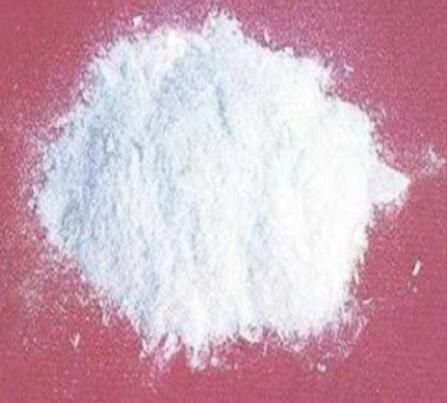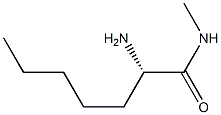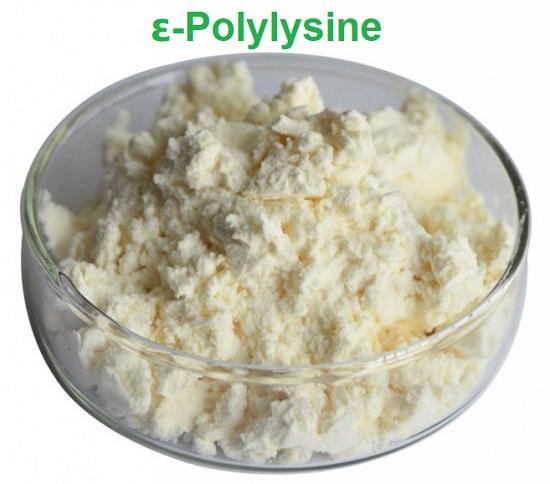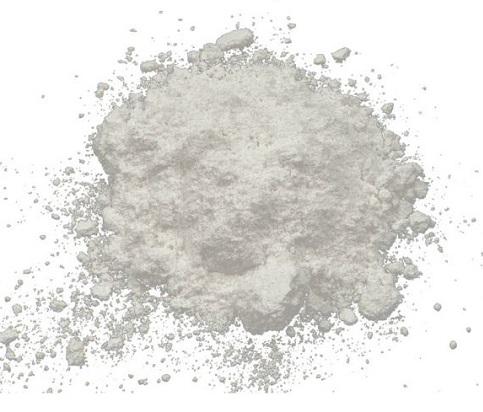Antimicrobial action of ε-polylysine
Epsilon-polylysine (ε-polylysine), a fermentative by-product of Streptomyces albulus , is a polyamino acid (not a protein), comprised exclusively of l-lysine residues linked together by amide bonds. ε-Polylysine is used extensively in Japan as an emulsifier, drug carrier, and dietary/anticancer supplement, or as a component of biodegradable fiber and biochip coatings.

Uses
ε-Polylysine is also used in Japan as a natural preservative (0.1–0.5%) in surimi products. It is readily soluble in water and in aqueous solution functions as a surface-active cation, to which both gram-negative and -positive bacteria are highly susceptible (1–8 μg/ml; typical inhibitory level). In general, yeasts and molds are less vulnerable than bacteria. Shima, Fukahara, and Sakai (1982) found that bacteriophages were susceptible to ε-polylysine and spore germination by some strains of Bacillus was also inhibited (2.5–12.5 μg/ml).
Antimicrobial action
The antimicrobial action of ε-polylysine involves electrostatic interactions between the cationic compound and cell membranes and results in the sloughing-off of the outer membrane and disruption of cytoplasm. Antimicrobial activity appears to increase with number of residues within the polymer and at least ten residues are required for optimal antimicrobial activity. ε-Polylysine polymers produced by S. albulus typically contain 25–35 l-lysine residues. The polymer is heatstable (120°C for 20 min or 100°C for 30 min), and remains active at an acidic or alkaline pH (5.0–8.0) . Antimicrobial activity was enhanced in the presence of glycine, vinegar (acetic acid), ethanol, and thiamine lauryl sulfonate. ε-Polylysine may be less active in the presence of proteins and acidic polysaccharides, and is therefore most commonly used in starch-based products.
Geornaras and Sofos (2005a) investigated the antimicrobial activity of ε-polylysine (0.0025–0.05%) against L. monocytogenes , S. Typhimurium, and E. coli O157:H7 in culture broth (tryptic soy broth plus 0.6% yeast extract; 24°C, 24 h or 4°C, 30 days), and found it to inhibit all three pathogens at 24°C, and to inactivate S. Typhimurium and E. coli O157:H7 at 4°C.
When used in combination with other antimicrobials (0.25% sodium diacetate, 3.0% sodium lactate, 0.1% lactic or acetic acid) a greater level of activity against E. coli O157 and S. Typhimurium was observed. Another recent study examined the antimicrobial activity of ε-polylysine (0.005–0.04%) against L. monocytogenes , E. coli O157:H7, and Salmonella in various food extracts, including those of beef and bologna. The antimicrobial activity of ε-polylysine during storage (12°C, 6 days) was affected by type of pathogen and/or food extract, while no immediate reductions in pathogen populations were observed in protein-dense food extracts. When added to the beef or bologna extract, ε-polylysine generally resulted in lower pathogen counts (compared to controls) by the end of storage, and higher concentrations of ε-polylysine were generally more effective.
Unlike many other antimicrobial compounds, ε-polylysine exhibited a greater antimicrobial activity against the pathogens in food extracts than in a broth. The efficacy of ε-polylysine (100 ppm), acidified calcium sulfate (ACS; 1:4 ACS and water), and a combination treatment (1:4 ACS and water plus 100 ppm ε-polylysine) as carcass decontamination washes (50–55°C; 14 ml/s) was also investigated. Although no details were provided, it was reported that ACS followed by ε-polylysine reduced pathogen levels by 1.5 log CFU/cm 2 over a 7 day period, and ACS plus ε-polylysine was more effective than individual treatments of water, l-lactic acid, ACS, or ε-polylysine.
You may like
Related articles And Qustion
Lastest Price from Epsilon-polylysine manufacturers

US $0.00-0.00/KG2025-06-27
- CAS:
- 28211-04-3
- Min. Order:
- 1KG
- Purity:
- 98%min
- Supply Ability:
- 500KG

US $0.00-0.00/kg2025-06-13
- CAS:
- 28211-04-3
- Min. Order:
- 0.001kg
- Purity:
- 99.99%
- Supply Ability:
- 20000000t



